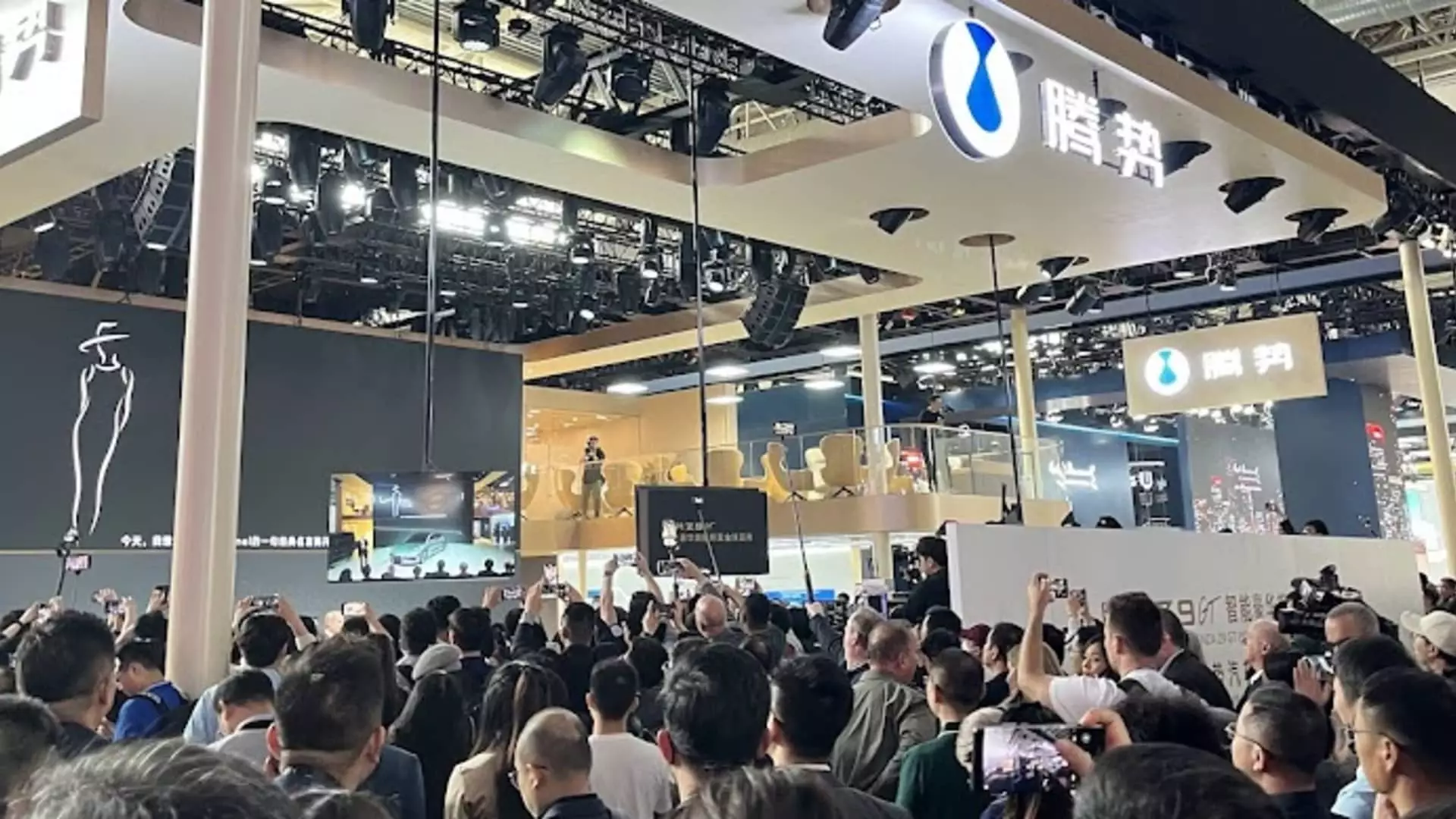The recent Beijing auto show showcased the intense competition in China’s car market, with a significant number of visitors and car launches. Investment analysts are closely monitoring potential winners in this highly competitive market, as more than 170 brands operate in China, creating oversaturation and fierce competition. This market is currently transitioning from internal combustion engines to battery electric vehicles, leading to questions about the future strategies of international original equipment manufacturers (OEMs).
After initially restricting access to business and media, the Beijing auto show opened its doors to the general public. Car companies focused on attracting consumers by offering unique experiences beyond the traditional coffee and prizes. Brands like Porsche and Geely showcased Apple Vision Pro experiences, while others like Mazda and Nezha hired musicians and dancers to engage with the audience. Autonomous driving supplier Asensing also participated in the show to learn about industry trends and promote its products for global expansion.
More than 110 new car models made their debut at the auto show, emphasizing the importance of such events for top brands to showcase their products and gain traction in the market. Founders of electric vehicle (EV) makers, like Xiaomi and BYD, grabbed attention at the show, with Xiaomi’s chairman Lei Jun promoting the company’s new electric sedan. Xiaomi received significant social media attention for its SU7 model, highlighting the importance of effective marketing strategies in the automotive industry.
To encourage trade-ins and boost sales of new energy vehicles, the Chinese government introduced subsidies for certain purchases of electric and fuel-powered cars. Analysts predict that this policy could increase passenger vehicle sales by 1 million units this year, supporting the growth of the new energy vehicle market. Chinese car stock picks, such as Leapmotor, Geely, and BYD, are seen as potential beneficiaries of government stimulus, indicating a shift in focus towards domestic automakers over foreign companies.
Foreign companies like Volkswagen are facing challenges in the Chinese auto market, as they have struggled to adapt to changing consumer demands and compete with cost-competitive domestic manufacturers. The management of Volkswagen acknowledged the need to realign their strategies to retain market leadership among foreign OEMs. Despite buy ratings on Volkswagen and Xpeng, analysts only rate Tesla and Toyota Motor as holds, suggesting a cautious approach towards these international players.
The China auto market continues to witness intense competition, rapid technological advancements, and shifting consumer preferences. Domestic automakers are gaining momentum, supported by government policies and incentives, while foreign OEMs are facing challenges in maintaining their market share. Effective marketing strategies, product innovation, and government stimulus are expected to drive growth and shape the future of the Chinese car industry.

